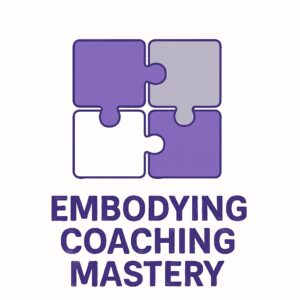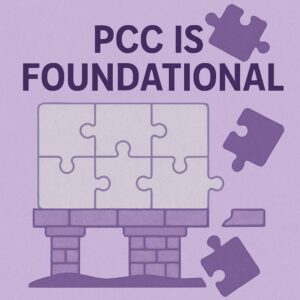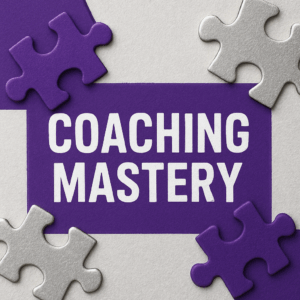Embodying Coaching Mastery: What does this really mean?
What does ‘coaching mastery’ really mean?

At the MCC level, coaching transcends technique – it becomes artistry.
As such, mastery is not an endpoint – but a commitment – to yourself, your clients and the wider profession.
This involves key shifts such as:
-
Moving from curated questioning to spontaneous curiosity that invites deeper insight.
-
Evolving from agenda management to fluid co-creation of session direction.
-
Transitioning from coach-driven reflection to client-generated meaning and forward movement.
-
Deepening the trust and safety that allows the client’s full self to emerge without judgement or interference.
Achieving the MCC credential is about far more than demonstrating technical competence in relation to the core competencies and BARS. This is because it represents a profound shift in the way a coach shows up: not only in skill, but in presence, partnership and personal evolution.
While the PCC level provides the essential foundation – and a very clear structured approach – the MCC level calls for something more nuanced: a fully integrated artistry that is intuitive, relational and transformative.
PCC as Foundational: From Competency to Artistry

One of the most important contextual understandings about MCC-level coaching is that it assumes the PCC-level competencies are fully integrated.
The MCC BARS do not replace PCC; they extend beyond it.
Reading MCC-level descriptions without recognising the foundational role of the PCC markers may make them seem abstract or ‘loose’. But in reality, these markers are built on years of embodied, practiced skill.
At MCC level, this kind of fluid creativity and presence is only impactful because it rests on a solid, observable foundation of the PCC-level competency structure.
What does MCC-Level coaching really look like?
ICF defines MCC coaching by its fluidity, depth and transformational presence. The coach operates not through steps, models or formulas but through artful, real-time attunement to the client’s world while integrating multiple competencies in a seamless, embodied way.
According to ICF, hallmarks of MCC coaching include:
-
Deep trust in the client’s resourcefulness, wisdom, and autonomy.
-
Coaching presence that is calm, spacious and grounded.
-
Confidence to challenge, reflect and share insight without attachment.
-
Listening for energy shifts, emotions, patterns, meaning and system-level impacts.
-
Trust in the coaching process – allowing clients to shift direction, reflect, stumble.
-
Focus on who the client is becoming, not just what they want to do.
This is not about fixing, leading or solving. The coach is a mirror, a partner, a co-discoverer. Mastery is not in control, it is in presence and co-creation.
MCC-level behaviours: A Snapshot
According to the ICF MCC BARS and minimum skills requirements:
-
The coach explicitly partners with the client in focus, direction, and process.
-
Insights emerge organically, often from intuitive, somatic, or symbolic levels.
-
The coaching relationship is transformational, not transactional.
-
Curiosity is deep, attuned, and generous – exploring the client’s whole being.
-
The coach operates from a state of radical trust in the client’s capacity and growth.
-
Questions are minimal, precise, and generative – born from deep presence, not technique.
Coaching Mastery and the Coach’s Inner Journey

MCC-level coaching is deeply relational, not just in the sense of client partnership, but in how the coach relates to themselves.
To coach at this level means being on a personal growth journey, not just a professional one.
At MCC, who you are becomes just as important as what you do. Self-awareness, emotional attunement, and the willingness to do your own inner work is not optional, it is essential.
Clients are whole people, just as we are, so to invite depth, we must embody it.
To find out about PCC to MCC mentor coaching click here and to explore the Jigsaw Learning Hub course ‘Embodying Coaching Mastery: PCC to MCC’ click here.
